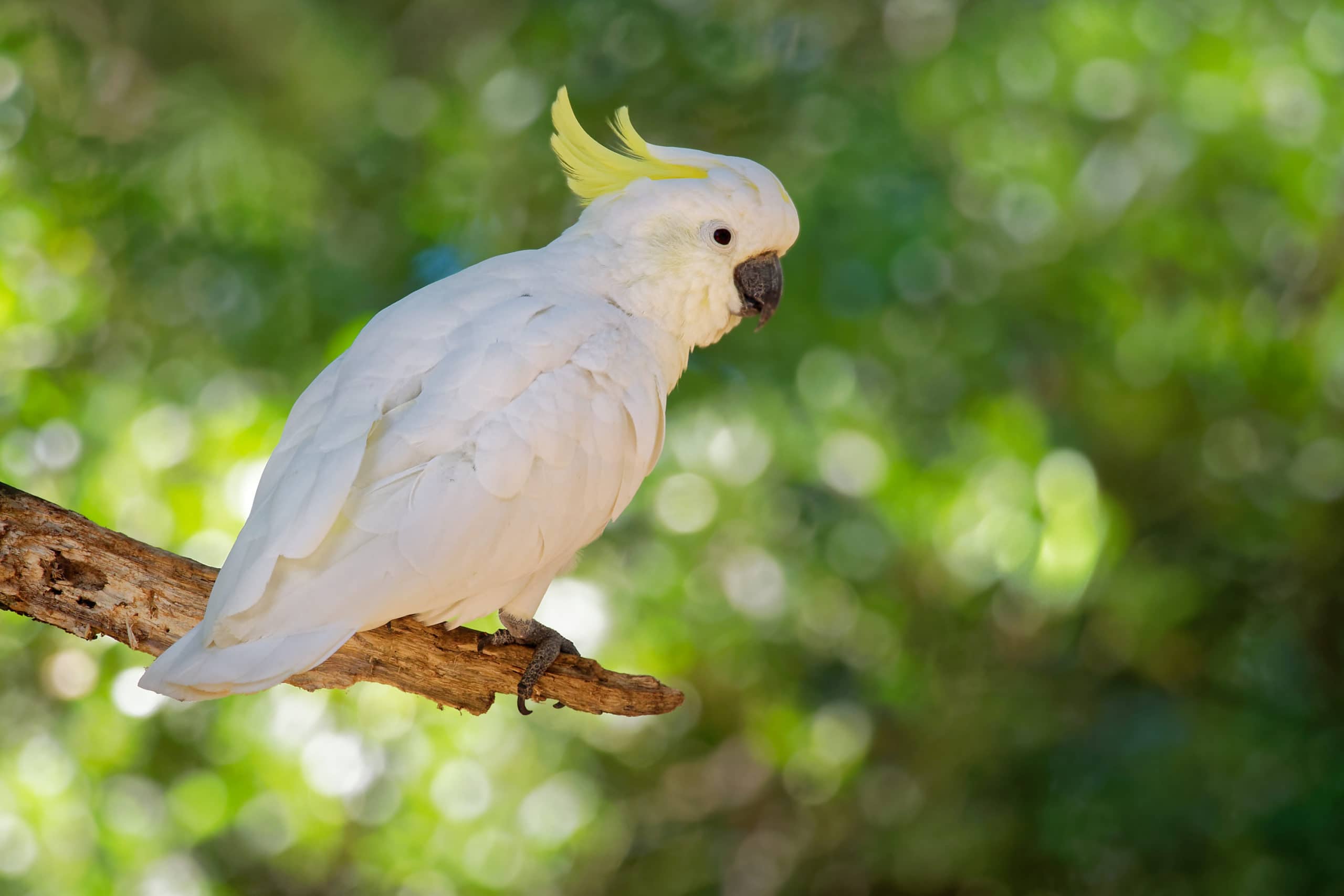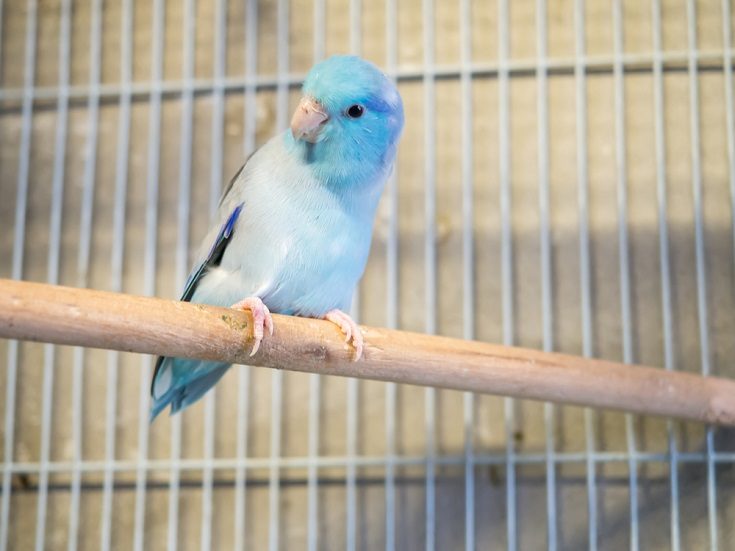
The parrotlet is the smallest member of the parrot family, smaller even than the budgie, but they have a huge character. They need a decent-sized cage because they are intelligent animals that can quickly become bored if they are not given enough stimulation.
They require toys, and swings, and they obviously need room to stretch their wings in a cage that is at least 18 x 18 inches, although no matter how big the cage is, you must ensure that it is safe and secure. These active little birds will try to find a way out, given the chance. Below, we have provided instructions on how to choose the right cage size for parrotlets, as well as answered some questions about this unique little member of the parrot family.
About Parrotlets
Parrotlets, as the name implies, are small parrots. In fact, they are the smallest breed in the parrot family, even though they are most closely related to the Amazon parrot. Pocket parrots are expected to live 20 years but many will live to be 30 years of age or more.
And, while they are small, they have huge personalities, and you should expect them to become an active and quite loud member of your family. They come from Mid and South America and, in the wild, they travel in flocks between 4 and over 100 birds. Experts say that they are a large bird caught in a small bird’s body, as they are smaller than a standard budgie.
They are highly intelligent, can be very affectionate, and they will form a strong bond with their human owner. Some parrotlets will learn to talk; even this is something that is usually associated with the much larger parrot breeds.
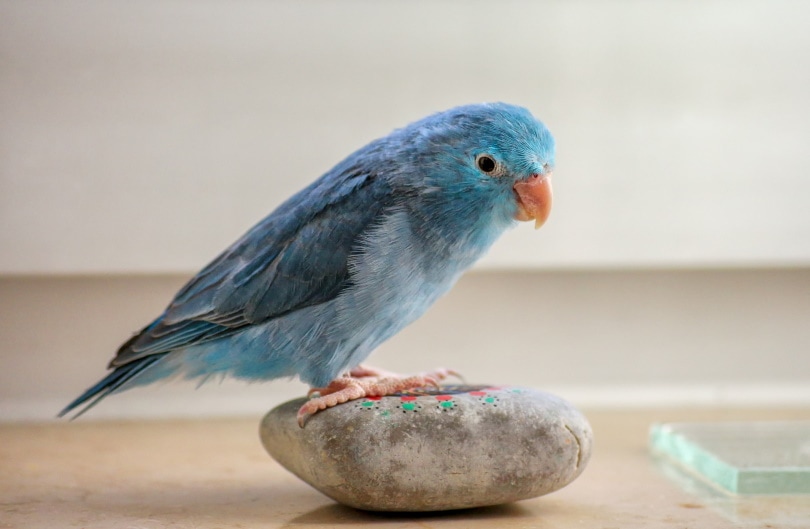
The 4 Tips for Choosing the Right Cage Size
Parrotlets need plenty of physical and mental stimulation, including socialization with their human owners. This means that they also need a suitable cage that will enable them to lead as fulfilling a life as possible. The following steps will help ensure that you get the right size cage for your parrotlet pet.
1. Bar Width
The parrotlet is a very small bird, capable of squeezing through quite small cages. The gap between the bars should not exceed ⅝ of an inch, and ideally, it should be around a ½ inch width because this will prevent the bird from escaping between the bars.
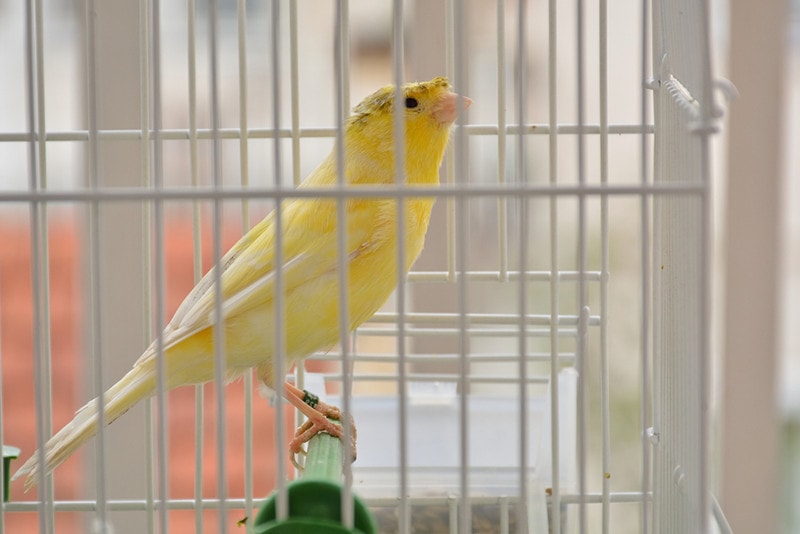
2. Cage Security
As intelligent birds, parrotlets are capable of working out puzzles. This includes the puzzle of how to open a door that isn’t latched or an opening that isn’t locked. This means that you will have to ensure that all opening sections of your parrotlet’s cage are securely closed and locked.
3. Minimum Size
The minimum size for a parrotlet cage is considered to be 18 x 18 inches, but bigger is perfectly acceptable. This size ensures that they have enough room to spread their wings and exercise. It also means that there is plenty of room to include everything that they need to lead a fulfilled life. There is no maximum cage size for this breed, as long as your bird won’t get lost getting from one side of the cage to the other.
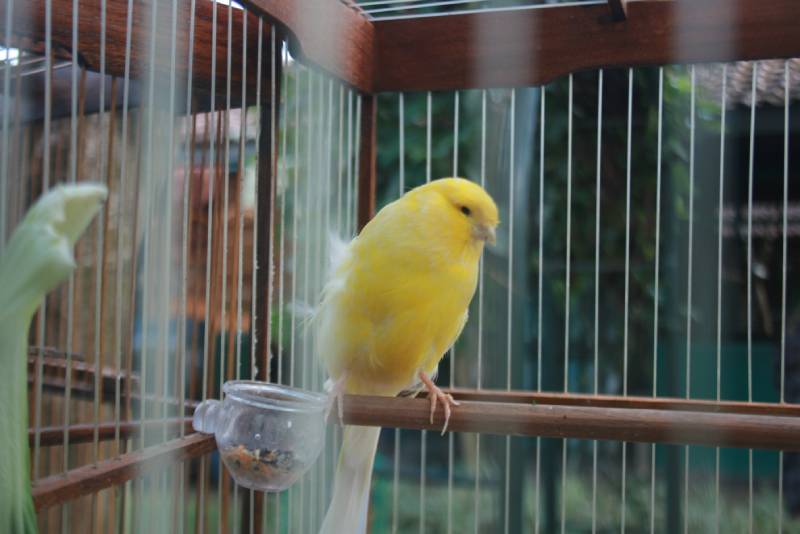
4. Accessories
The parrotlet is an intelligent and active little bird that requires a lot of stimulation. As such, he will require toys, swings, perches, mirrors, and furniture. He will also need somewhere to eat and somewhere for his water. You should find there is plenty of room in an 18 x 18-inch cage for all of these accessories, but if you can provide a few extra inches, this means that you can also provide your bird with a few extra toys, and he will appreciate the effort.
Other Factors to Consider
When choosing a cage, size matters but it isn’t everything. Factors like the shape and the material used in the construction of the cage are important, too.
Are Parrotlets Better in Pairs?
Parrotlets are considered dimorphic, which means that they will pair with another bird easily. A pair of birds will not usually fight or squabble. However, some owners prefer to keep a single parrotlet because this means that the bird is more likely to bond closely with the human owner.
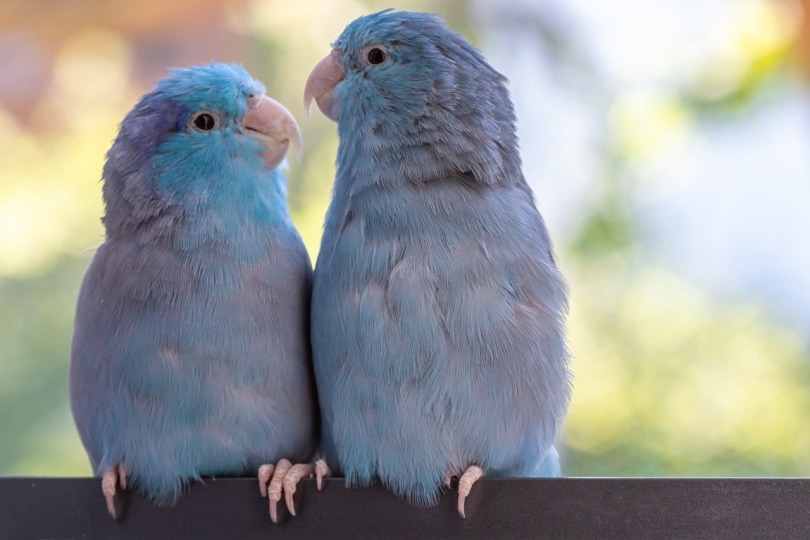
What Color Cage Is Best for Birds?
There is no preference when it comes to cage color, from the bird’s point of view. However, dark colors and especially black cages do tend to show off your birds better so that you can enjoy their appearance.
What Type of Materials Should Be Avoided When Choosing a Bird Cage?
Birdcages should ideally be made of powder-coated or stainless steel. These materials are durable and long-lasting while being safe and sturdy. Avoid iron and painted finishes, because these can be toxic. Lead and zinc, which were used to paint older cages, can also be dangerous for your bird.
Do Birds Hate Round Cages?
Birds do not necessarily hate round cages. However, most birds like some privacy and can be quite defensive, preferring corners where they can get out of the way. This obviously isn’t possible in a round cage, so your bird might become more stressed if kept in a round cage. Square and rectangular cages are better for your bird’s character and well-being.
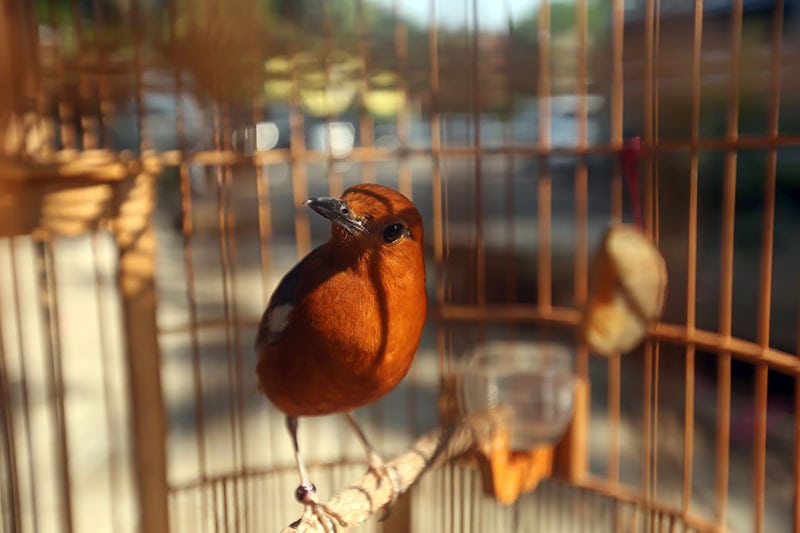
Final Thoughts
Although the parrotlet might be the smallest breed of parrot, he has a big character. He needs plenty of exercise and one way of ensuring that he gets this is to ensure that his cage is a suitable size. Meet minimum cage size requirements, be sure that the bars are close enough together and the doors are secure enough that your parrotlet will not escape, and enjoy owning this friendly and potentially chatty little bird.
Featured Image: Monrudee, Shutterstock





